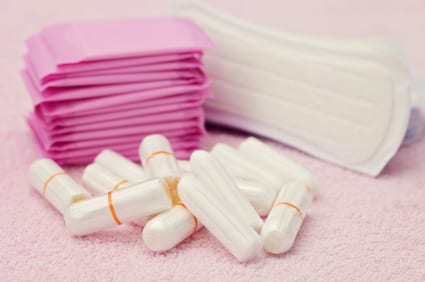 When women learn that I once was an L&D (Labor & Delivery) nurse and am currently a women’s health expert for Always and Tampax, they feel comfortable asking me questions about some of the more private aspects of their reproductive health.
When women learn that I once was an L&D (Labor & Delivery) nurse and am currently a women’s health expert for Always and Tampax, they feel comfortable asking me questions about some of the more private aspects of their reproductive health.
In fact, upon learning what I am currently doing a neighbor recently began telling me about the hormone changes that are impacting her as she ages. Additionally, I often respond to questions in online discussions where there is often a lack of information. As I always say, while I don’t have all of the answers, I can research the topic and translate the current research-based thinking in a way that is more digestible.
In this post, I am going to relay a few of the questions I have received, along with the answers I provided. Feel free to ask more if there is something pressing that you want me to address!
I got my period twice in one month. Why?
Depending on your cycle, it is possible to have two periods in a month. To determine how many days are in your cycle, count from the first day of your current period to the first day of your next period. Anything from 21 to 35 days is average. So if you were to get your period on April 1, it is possible to have it again on April 22. If your period comes closer than three weeks apart or if you are noticing some very different fluctuations, I suggest you check it out with your health care professional (HCP).
If you aren’t really sure how you’re cycling, it’s best to use a calendar to track it. It can be difficult to remember when you actually had your period if you are busy and not focused on that part of your life. Also, having this information documented will be helpful if you decide to talk about this with your HCP.
How do you feel about using birth control pills to skip your period?
If you are thinking of skipping your period, you should speak with your HCP to make sure this is a safe option for you. Not all birth control pills result in skipped periods. Some allow bleeding every month by regulating the hormone levels in the daily pills that are taken. Many women view having a period in a positive way.. To some, having a monthly period is a reassuring sign that they are not pregnant. For others, a monthly period is a sign of normal cycling of hormones and a healthy endocrine system.
Perhaps an explanation of why we have periods will be helpful. Your period is just one part of a larger menstrual cycle. As you grow older and become reproductively mature, you develop a menstrual cycle. During this cycle, the uterus will prepare to house a fertilized egg. If the egg is not fertilized, meaning the woman is not pregnant, then the lining is not needed and is shed. It is this shedding of the uterine lining that is called your period. This cycle repeats itself month after month, until the woman reaches menopause.
Is vaginal discharge normal?
Discharge, which can begin close to when a girl has her first period, occurs almost daily throughout most of a woman’s life, even when she is pregnant.
Vaginal discharge is simply mucus – much like what moistens and protects your eyes and nose. It is usually clear in color but may look white or off-white when seen outside of your body (on your underwear or toilet tissue). How much there is and how thick or watery it is, will vary from day to day. This variation is due to normal changes in your hormone levels during your menstrual cycle.
If you find discharge uncomfortable, you can use an Always liner or pad to absorb it away from your body. Tampons should not be used to absorb discharge. They are only used when your menstrual period is actively flowing. Discharge that has a strong or bad odor and is yellow, gray, or green in color and/or causes itching should be checked out by your HCP as soon as possible.
Should I douche to cleanse my vagina?
The vagina (passageway from the uterus to the outside of the body) does not usually require any special cleansing. It has the ability to cleanse itself and normally secretes a clear or whitish colored discharge as part of this process. If you notice an unusual vaginal discharge or odor from your vagina, do not try to treat it yourself; see your HCP.
Douching involves washing out the vagina by squirting water or other solutions inside. Douching changes the chemical balance in the vagina, which can cause infection. It can also push infections you may already have further into the body. This can lead to more serious problems such as pelvic inflammatory disease (PID). PID is an infection has spread into the uterus, ovaries, and/or fallopian tubes. It is best not to douche unless your HCP specifically recommends that you do.
To cleanse your vulva (the outside part of your genitals) it’s best to simply wash the area with water or water and a mild soap.
Have more questions? Feel free to contact me!
Elaine Plummer is a health expert for Always and Tampax.





